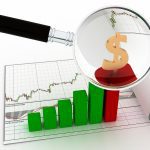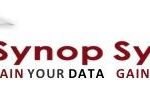San Francisco's Open Data Initiative allows the government of San Francisco to share open data with its citizens, who can use the data to develop innovative mobile application that are of benefit for the citizens as well as the government. Adam Shaw, from BBC Horizons, tests a few of these apps while on the road in San Francisco. He tests an app that can rate restaurants in … [Read more...] about Testing the San Francisco Open Data Initiative – Video
Big Data
Learn everything you need to know about big data. Find out how companies are using this revolutionary technology and what it means for your business strategy.
ParStream Is A Real-Time Big Data Analytics Platform
Company ParStream Address 275 Shoreline Drive Redwood City, CA 94065, USA Founders Michael Hummel, Jrg Bienert & Norbert Heuer Founded 2008 Funding $ 5.6 million Employees 40 Website www.ParStream.com Rating 8 bits ParStream is a big data analytics platform that is capable of delivering sub-second response time on terabytes of data. Launched in 2008 in … [Read more...] about ParStream Is A Real-Time Big Data Analytics Platform
The Datafication of People and Stuff and Things
So I thought I was being original for writing a piece on datafication. But when I searched it, I saw that many before me had written about it, and just like the word Big Data, so too had datafication become a buzzword, just like buzzword before it had become a buzzword. But like Chumbawumba, I get up again, and this will not keep me down. First, the definition. There is no … [Read more...] about The Datafication of People and Stuff and Things
Big Data Governance – Data, Algorithms and Auditors
In a previous post I introduced the topic of Big Data governance and that there are three different aspects that are part of big data governance: the data, the algorithms and the data auditors. I discussed accountancy as a metaphor, where accountancy is used within organizations for checks-and-balances, data governance should be used to ensure the data and algorithms are … [Read more...] about Big Data Governance – Data, Algorithms and Auditors
Synop Systems Offers An In-Memory Data Discovery Solution
Company Synop Systems Address Alte Palmbacherstrae 14 76228 Karlsruhe Germany Founders Volker Marquardt & Dr. Ansgar Dorneich Founded March 2012 Funding Self-captialized Employees Unknown Website www.synop-systems.com Rating 6 bits Synop Systems, a German big data startup that launched in March 2012, has developed the Synop Analyzer. This big data tool … [Read more...] about Synop Systems Offers An In-Memory Data Discovery Solution
What is big data?
Big data is a term that refers to the massive amount of digital data created and shared every day. Big data can transform how we live, work, and communicate. It can be used to improve everything from public health and urban planning to business and marketing.
Big data is also changing the way we think about privacy and security. The volume, velocity, and variety of big data present challenges and opportunities for organizations and individuals. Regardless, big data is here to stay, and its impact will only continue to grow in the years to come.
What is big data analytics?
Big data analytics is the process of turning large, complex data sets into actionable insights. Businesses use various analytical tools and techniques, including machine learning and statistical analysis, to do this.
Big data analytics can be used to improve decision-making in areas like marketing, operations, and customer service. It can also be used to identify new business opportunities and optimize existing processes. With the help of big data analysis, businesses can gain a competitive edge by using their data better.
Want to learn more about big data? Datafloq has courses available. Contact us to get started.
When was big data introduced?
The term big data was coined in the 1990s, with some giving credit to John Mashey for popularizing the term. However, the concept of big data has been around for much longer.
Where does big data come from?
In the early days of computing, scientists and businesses began to realize that the amount of data being generated was increasing exponentially. As a result, they began to develop new methods for storing and processing data.
Over time, these methods have become increasingly sophisticated and have played a key role in enabling businesses to make sense of vast amounts of information. Today, big data is used in various industries, from retail to healthcare, and its importance is only likely to grow in the years to come.
What are examples of big data?
One of the most common examples of big data is social media data. With over 2 billion active users, Facebook generates a huge amount of data every day. This includes information on user interactions, posts, and even location data. Analyzing this data can help companies better understand their customers and target their marketing efforts.
Another example of big data is GPS signals. These signals are constantly being generated by devices like cell phones and fitness trackers. When combined with other data sets, GPS signals can be used to provide insights into everything from traffic patterns to human behavior. Finally, weather patterns are another type of big data set. By tracking these patterns over time, scientists can better understand the impact of climate change and develop strategies for mitigating its effects.
How do companies use big data?
Companies use big data in marketing, product development, and customer service. By analyzing large data sets, businesses can identify patterns and trends that would be otherwise difficult to spot. For example, a company might use big data to track customer behavior patterns to improve its marketing efforts.
Alternatively, a company might use big data to improve its products by identifying areas where customers are most likely to experience problems. For instance, big data can be used to improve customer service by finding pain points in the customer journey. Ultimately, big data provides companies with a valuable tool for gaining insights into their business operations.







